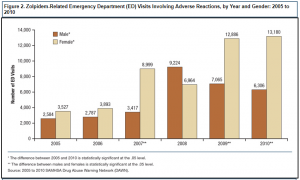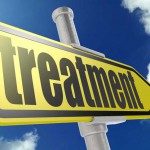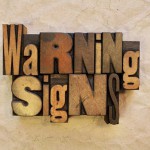Ambien Addiction & Abuse Statistics

Ambien addiction and abuse statistics can be shocking to view because Ambien is not typically known for it’s addictive tendencies. Unfortunately there are thousands of cases of Ambien addiction and abuse in the United States alone each year. Keep reading to find out more about these statistics and what can be done to curb these numbers.
Ambien addiction & abuse statistics
As the number of prescription drug addiction cases continues to rise in the United States, it is worth taking a look at Ambien addiction and abuse statistics as the active ingredient in Ambien – Zolpidem is being found to be highly addictive to those who abuse taking the drug. Zolpidem is a medication approved by the U.S. Food and Drug Administration (FDA) for short-term treatment of insomnia.
- Ambien is the best-selling sleep medication in the United States.
- By 2007, there were 16 million prescriptions written for Ambien in the United States. That accounted for 30 percent of all non-barbiturate sleep aids sold in pharmacies.
- By 2009, that number had doubled to 34.9 million prescriptions.
- Use of the brand dropped later in 2009 when the generic version of the drug became available, but the brand still held 12 percent of the sleep-aid market.
- The number of Ambien-related emergency room visits doubled between 2004 and 2008 from about 13,000 to 28,000 in the United States.
- When referring to the active ingredient in Ambien – Zolpidem – in 2010, there were 64,175 emergency room visits by patients. An an estimated 19,487 (about 30 percent) of the emergency room visits were related to adverse reactions from the drug. This could stem from Ambien abuse or it could be related to adverse side effects.
- The number of zolpidem-related emergency room visits increased about 220 percent over a five-year period from 6,111 visits in 2005 to 19,487 in 2010 due to adverse reactions.
Causes of Addiction
In 2009, 7 million Americans reported they currently partake in non-medical usage of prescription drugs. This number far surpasses the number of people reportedly addicted to illegal narcotics in the United States, according to recent numbers from the National Institute on Drug Abuse.
Because Ambien has a lower addition rate than some other commonly-abused prescription drugs like opioids, anti-anxiety drugs, antidepressants and others, it is not recognized that it is still possible to become addicted to Ambien and suffer ill effects as a result if the medication is not taken properly as prescribed.
When looking at the Ambien addiction and abuse statistics, it is clear there is still a problem with drugs like Ambien being used for non-medical purposes or even abused under a prescription. The causes of the addiction can arise based on several factors:
- Those who have family history of addiction or have previously been addicted to a substance are more likely to become addicted to Ambien if used incorrectly.
- Because Ambien has a short half-life in order to avoid lingering effects when a person awakes, this can also cause troubles for those who feel like they need more sleep or still have trouble sleeping even when taking Ambien. This scenario can set up why some abuse the drug – it starts as an attempt to self medicate.
Ways to prevent Ambien addiction and abuse
- Always take the medication exactly as prescribed by your doctor or health care professional.
- Do not attempt to self-medicate if you have not been prescribed the drug by your doctor.
- Do not attempt to change the dosages of your medication without the direct supervision of your doctor.
If you feel like you are beginning to become addicted to the effects of Ambien – needing more of the drug to achieve the same effect, experiencing withdrawal symptoms when you don’t take it, it is important to get medical help immediately. Consult with your doctor about how to cope with Ambien addiction and abuse.
Remember, it is possible to overdose on Ambien. Those addicted to the drug and need to take more of it to achieve the same effect might be at a higher risk of overdosing on Ambien. An overdose on the drug can be fatal and should be taken seriously. Possible overdose symptoms include:
- Extreme drowsiness
- Weak heartbeat
- Trouble breathing, or weak breathing
- Difficulty functioning during the day
- Coma
If you or someone you know is struggling with Ambien addiction and abuse, contact a healthcare professional right away.
Sources:
Samhsa.gov
Health.com
Rxlist.com
Everydayhealth.com
samhsa.gov





